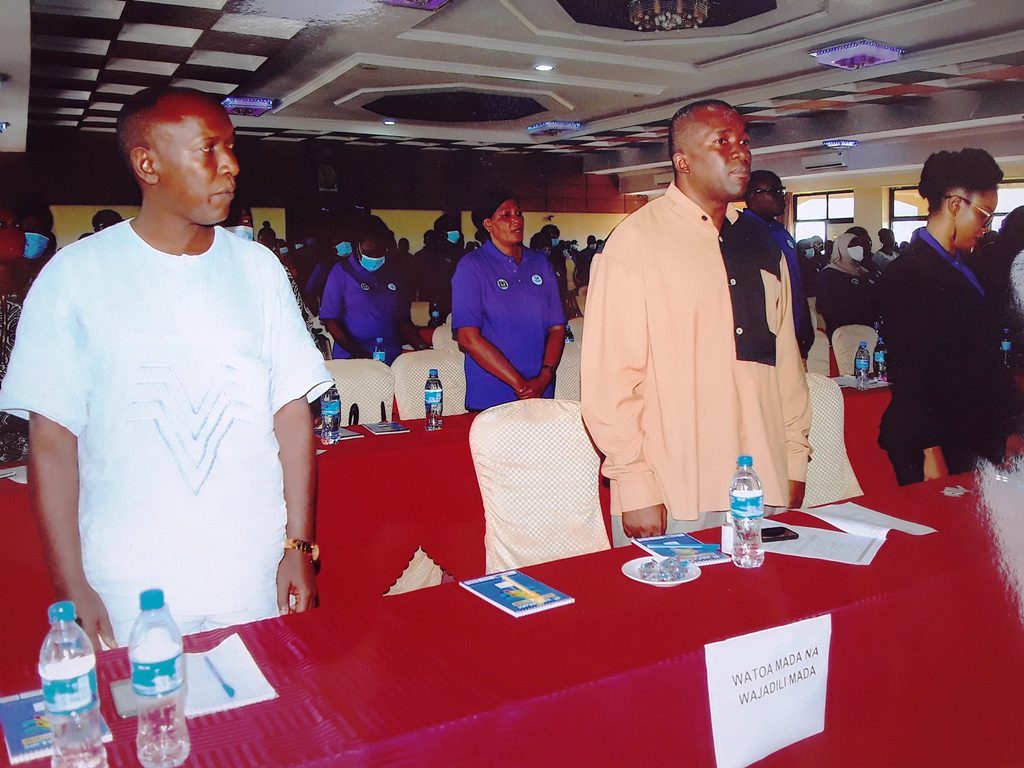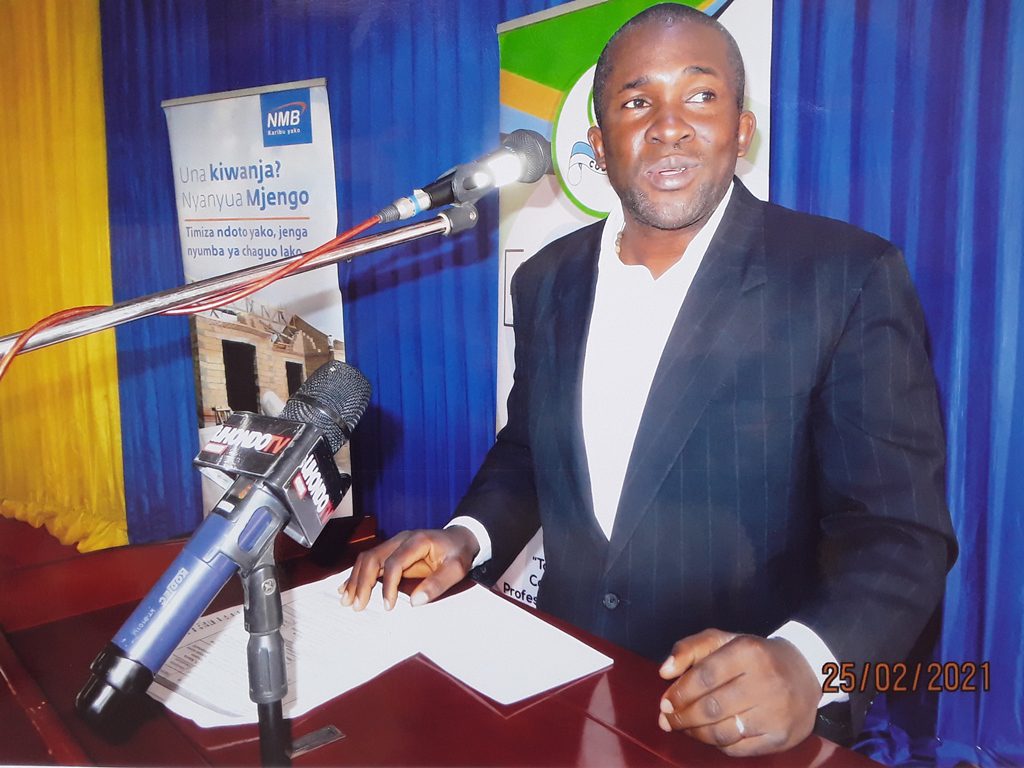Published on 4th March 2021
 From 23rd February 2021 to 26th February 2021, Dr. R. Madaha had an opportunity to attend and present a paper at the 4th Annual Conference and General Meeting of the Community Development Professional Association of Tanzania (CODEPATA). The conference brought together over 400 community development professionals from across Tanzania. They work for local governments, agencies of the central government, NGOs, and the private sector.
From 23rd February 2021 to 26th February 2021, Dr. R. Madaha had an opportunity to attend and present a paper at the 4th Annual Conference and General Meeting of the Community Development Professional Association of Tanzania (CODEPATA). The conference brought together over 400 community development professionals from across Tanzania. They work for local governments, agencies of the central government, NGOs, and the private sector.
Dr. Madaha had an opportunity to present a paper titled, “Community Participation and Decentralisation: the Case study of Morogoro district”
Below is the abstract of the paper:
 Poorly implemented local development efforts hardly benefit marginalized communities. Marginalized communities are voiceless communities living in rural and urban areas. The conventional wisdom is that marginalized people need to participate in their development. Tanzania has a number of participatory mechanisms to foster the participation of marginalized communities in their development. Overall, the country has developed a unique model of decentralization to facilitate participation and ownership of the development process by local communities (for details see Regional Administration Act No. 19 of 1997 and the Local Government Authorities Act No. 6 of 1999). The theory of decentralization states that the devolution of power to the people at the local level makes local governments more accountable to the public. The article presents the findings of a participatory study to track public budgeting in response to the needs of marginalized people at a local government level in Morogoro district, Tanzania. The exercise was conducted at selected administrative wards in the district. The main sources of information were both primary and secondary data. The data collection methods were key informant interviews, face-to-face interviews, observations, and documentary review of key documents. The findings suggest that there is a need to revisit community participation in development projects. Although community participation in the management of public development projects is important, some of the community members lack the required managerial and technical expertise to oversee development projects. In this regard, community participation interferes with the welfare of the communities at large. The findings suggest that Decentralisation by Devolution (D by D) requires additional efforts in developing the capacities of local communities for them to participate in the development process effectively and efficiently. The findings also call for the institutionalization of participatory public budget tracking at the local level to ensure effective and efficient use of public resources.
Poorly implemented local development efforts hardly benefit marginalized communities. Marginalized communities are voiceless communities living in rural and urban areas. The conventional wisdom is that marginalized people need to participate in their development. Tanzania has a number of participatory mechanisms to foster the participation of marginalized communities in their development. Overall, the country has developed a unique model of decentralization to facilitate participation and ownership of the development process by local communities (for details see Regional Administration Act No. 19 of 1997 and the Local Government Authorities Act No. 6 of 1999). The theory of decentralization states that the devolution of power to the people at the local level makes local governments more accountable to the public. The article presents the findings of a participatory study to track public budgeting in response to the needs of marginalized people at a local government level in Morogoro district, Tanzania. The exercise was conducted at selected administrative wards in the district. The main sources of information were both primary and secondary data. The data collection methods were key informant interviews, face-to-face interviews, observations, and documentary review of key documents. The findings suggest that there is a need to revisit community participation in development projects. Although community participation in the management of public development projects is important, some of the community members lack the required managerial and technical expertise to oversee development projects. In this regard, community participation interferes with the welfare of the communities at large. The findings suggest that Decentralisation by Devolution (D by D) requires additional efforts in developing the capacities of local communities for them to participate in the development process effectively and efficiently. The findings also call for the institutionalization of participatory public budget tracking at the local level to ensure effective and efficient use of public resources.

